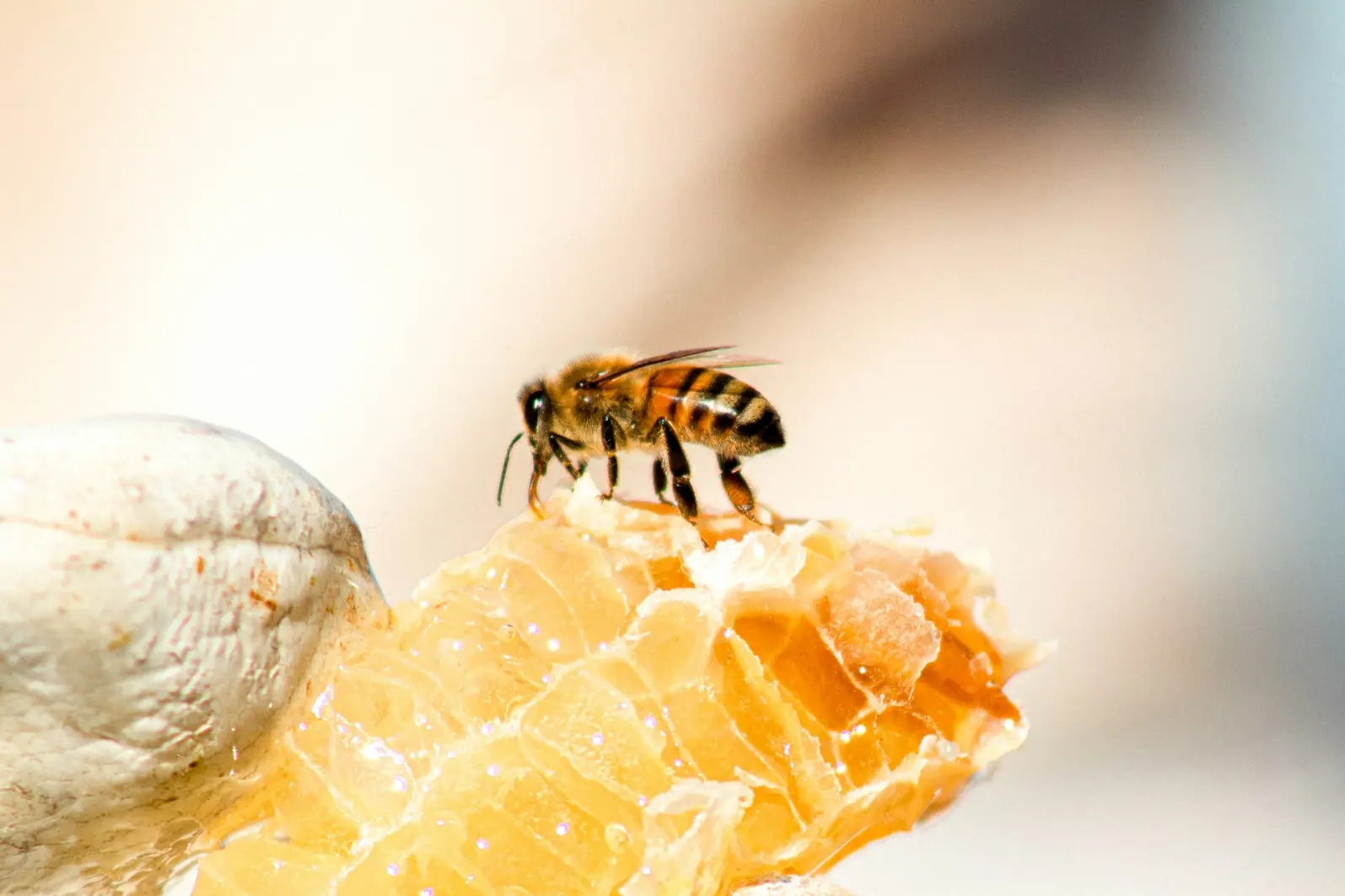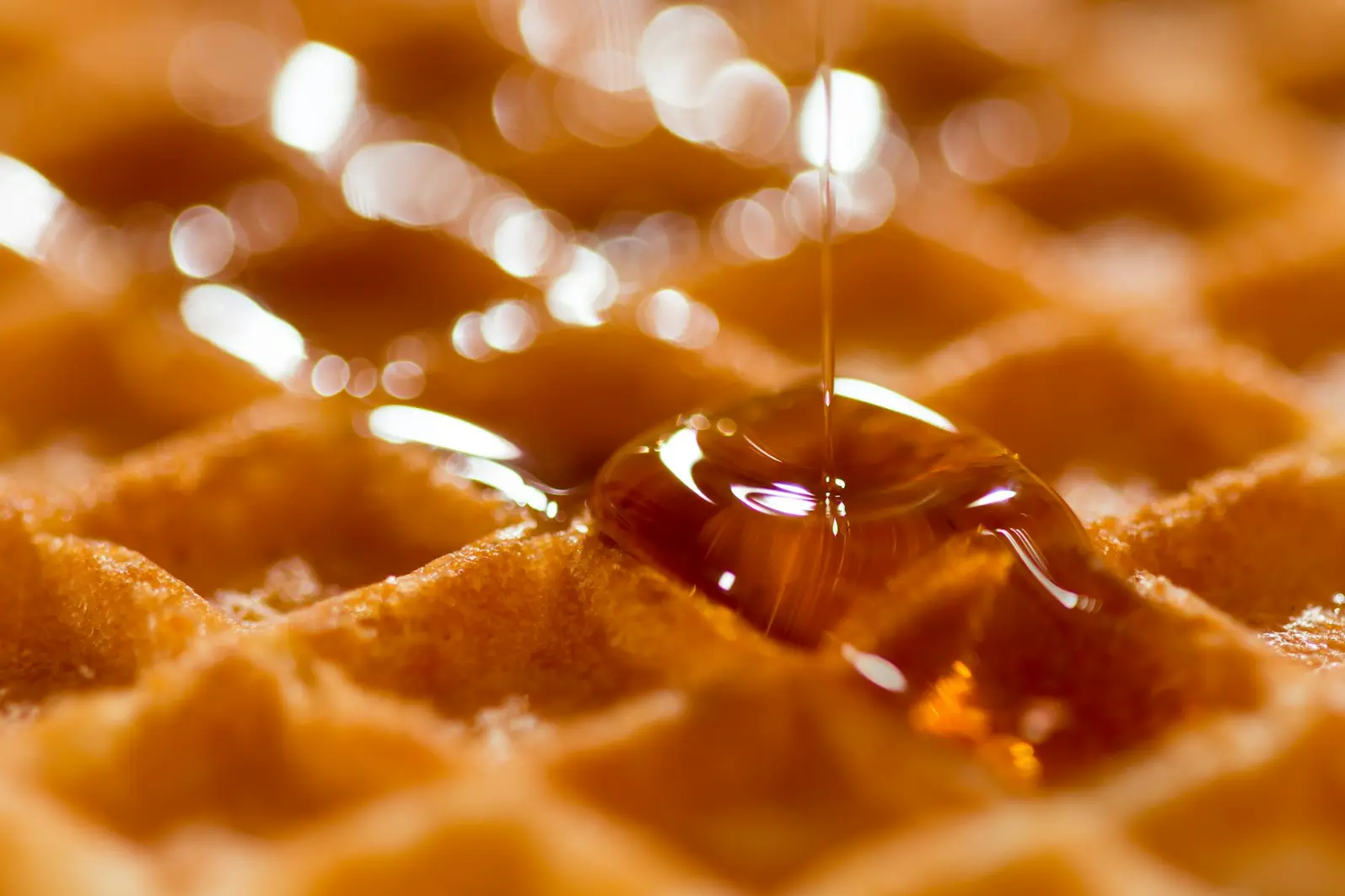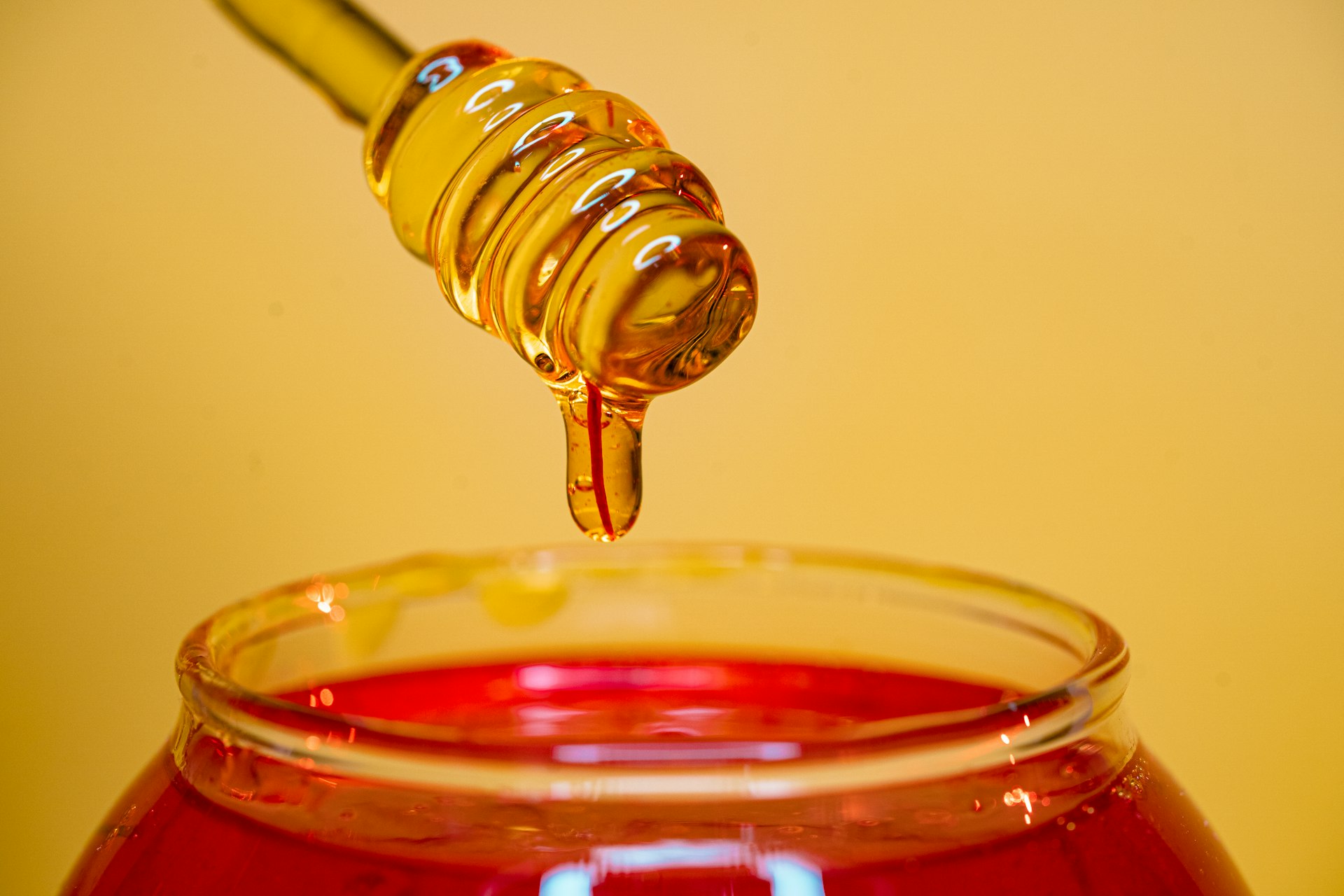About Honey
Raw honey is a remarkable creation—a natural sweetener, a source of energy, and a powerhouse of antioxidants and beneficial enzymes. Because our raw honey is unpasteurized, retaining all its natural goodness, it needs a little special care to keep it in perfect condition.
Here is your guide to the proper storage, handling, treatment, and enjoyment of the liquid gold in your jar.

Storage & Care: The Ideal Environment
To maintain your honey's quality, texture, and nutritional value, you need to create a stable environment that mimics the warmth and darkness of the beehive.
Go for Room Temperature: The ideal storage temperature for raw honey is a stable room temperature, ideally between 64–75∘F (18–24∘C). A pantry, cupboard, or kitchen cabinet is perfect.
Keep It Dark: Avoid direct sunlight and bright lights. Light, especially UV light, can degrade the antimicrobial properties and natural enzymes in raw honey, causing it to darken and lose flavor over time.
Keep It Dry: Honey is hygroscopic, meaning it loves to absorb moisture from the air. Too much moisture (if the seal is left open) can cause it to ferment and spoil.
Avoid Temperature Extremes:
NO Refrigeration: Cold temperatures dramatically accelerate crystallization, making the honey thick and difficult to pour.
Avoid High Heat: Keep the jar away from heat sources like stoves, ovens, or heating vents. Temperatures above 104∘F (40∘C) will damage the beneficial enzymes and antioxidants that make raw honey special.

Handling: Keeping Contamination Out
Since honey is hygroscopic and can absorb odors, proper handling is essential every time you open the jar.
Seal Tightly: Always ensure the lid is tightly sealed immediately after use. This maintains the airtight barrier, preventing moisture from entering and keeping your honey from absorbing strong odors from nearby foods (like onions or garlic).
Use Dry Utensils: Always use a clean, completely dry spoon when scooping honey. Introducing even a small amount of water or moisture can increase the honey's water content and promote fermentation.
Watch for Spoilage: Pure, raw honey rarely spoils, but contamination can occur. If you notice a sour, alcoholic smell, a foamy top layer, or pink/slimy residue, the honey may have fermented and should be discarded.

Treatment: Dealing with Crystallization
If your honey starts to look cloudy, thick, or grainy, congratulations—you have confirmed it is raw, unadulterated honey! Crystallization is a natural and normal process, not a sign of spoilage.
What to Do: If you prefer your honey liquid, you can easily reverse the process with gentle heat.
The Warm Water Bath (Bain-Marie):
Place the sealed jar into a pot or bowl of warm water.
The water should be warm to the touch, but not boiling or hot (keep it under 104∘F or 40∘C).
Let the jar sit, stirring the honey occasionally, until the crystals dissolve and it returns to its liquid state.
Do not microwave or expose the honey to intense, rapid heat, as this will destroy the raw, beneficial properties.
Start writing here...